By Anupama Nair
www.mediaeyenews.com
Our great Prime Minister Modi inaugurated the Amrit Mahotsav or celebration of Bharat’s 75th year of Independence. We will be celebrating this event till 2022. I am going to write a feature on all those great men and women who fought against foreign invasion not just against the British, but from the beginning of history as we know.
Seventh of June is the birth day of Bharat Maa’s “Veer Putra” Pritviraj Chauhan who was born on the 12th day of Jyeshta lunar month. Today I am going to tell the story of Prithviraj Chauhan who tried valiantly to stop the invasion of Muhammad Ghori and sacrificed his life in the process. His defeat at the Second Battle of Tarain paved the way for the Delhi Sultanate and subsequent Islamic stronghold in Medieval Bharat.
Prithviraj III (1178–1192 AD), popularly known as Prithviraj Chauhan was a king from the Chauhan dynasty. He ruled over Sapadalaksha, the traditional Chauhan territory located in present-day north-western India. He controlled much of the present-day Rajasthan, Haryana, and Delhi and some parts of Punjab, Madhya Pradesh and Uttar Pradesh. His capital was located at Ajayameru (Ajmer), The medieval folk legends described him as the king of Bharat’s political center Delhi and portrayed him as the last great representative of the pre-Islamic Indian power.
Prithviraj was born to the Chauhan king Someshwara and queen Karpuradevi. Both Prithviraj and his younger brother Hariraja were born in Gujarat, where their father Someshvara was brought up at the Chalukya court by his maternal relatives. The medieval biographies of Prithviraj suggest that he was highly educated. The Prithviraj Raso claimed that he was well-versed in a number of subjects, including history, mathematics, medicine, military, painting, philosophy, and theology. He was proficient in archery.
Prithviraj moved from Gujarat to Ajmer, when his father Someshvara was crowned the Chauhan king. After the death of his father, in 1177 AD, when still a minor, ascended the throne with his mother as the regent. The Hammira Mahakavya (a 15th century book written by Naya Chandra Suri) claimed that Someshvara himself installed Prithviraj on the throne, and retired to the forest. However, there are no records to prove this theory.
Prithviraj was a great conqueror and his kingdom at the greatest extent included vast regions of northern India. His name and fame spread across the subcontinent and Afghanistan as well. Many lesser kings were envious and wary of his power, particularly Raja Jaichand of Kannauj. Jaichand's daughter, Samyukta, who was known for her beauty, is said to have fallen in love with Prithviraj as his reputation dazzled her. She desired nobody but him. Prithviraj had heard about Samyukta's loveliness and fell in love with her too.
Prithviraj and Jaichand were rivals and on finding out about the affair, Raja Jaichand was outraged that a romance had been budding behind his back. Jaichand decided to insult Prithviraj and arranged a swayamvar (wedding) for his daughter in 1185 AD. He invited royal princes from far and wide to the ceremony, each and every eligible prince and king, except Prithviraj. He then commissioned a clay statue of Prithviraj, which served as a dwarpal or doorman to Jaichand's court.
Prithviraj Chauhan, on hearing about the impending swayamvar, devised a plan to elope with Samyukta. On the day of the ceremony, Samyukta walked through the court holding the ceremonial garland, and ignored the gazes of her ardent suitors. She passed through the door and put the garland around the neck of Prithviraj's statue, declaring him to be her husband. Prithiviraj, meanwhile was hiding behind the statue, caught Samyukta up in his arms, set her on his horse, and whisked her away to Delhi, enraging Raja Jaichand. This led to a rift between Delhi and Kannauj, weakening both the kingdoms, in the years to come and fall to Muhammad Ghori, sultan of Ghurid Empire.
Prithviraj's predecessors had faced multiple raids from invaders that had captured the north-western areas of the Indian subcontinent by the 12th century. By the end of the century, the Ghazni-based Ghurid dynasty controlled the territory to the west of the Chauhan kingdom. While Prithviraj was still a child, in 1175 AD, the Ghurid ruler Muhammad Ghori crossed the Indus River and captured Multan. In 1178 AD, he invaded Gujarat, which was ruled by the Chalukyas (Solankis). During its march to Gujarat, the Ghurid army appeared to have passed through the western frontier of the Chauhan kingdom. Ghori’s invasion was repulsed by Queen Naiki Devi somewhere in Anhilwara and the invader had to flee from the battle without any accomplishment Naiki Devi’s victory was chronicled by both Hindu and Muslim chronicles.
Following his defeat, Ghori began concentrating elsewhere. Over the next few years, he consolidated his power in the territory to the west of Chauhan’s kingdom, conquering Peshawar, Sind and Punjab. He shifted his base from Ghazni to Punjab, and made attempts to expand his empire eastwards, which brought him face-to-face with Prithviraj.
While Hindu accounts of the Prithviraj Chauhan’s encounters with Ghori proclaim that Prithviraj fought several battles with Ghori, defeating him each time, except the last one. As per recorded history both the kings met face-to-face twice at the Battles of Terrain in 1191 and 1192. In the first battle Prithviraj along with Govind Raj the ruler of Delhi defeated Ghori with Ghori barely escaping with his life. “Following his defeat Ghori began preparations” for another showdown and succeeded in the battlefield where he tasted defeat a year ago. Prithviraj was defeated, imprisoned and later killed, although his death is shrouded in mystery with various theories.
The Prithviraj Raso claimed that Prithviraj was taken to Ghazni as a prisoner, and blinded. On hearing this, the poet Chand Bardai traveled to Ghazni as well, and tricked Ghori into watching an archery performance by the blind Prithviraj. During this performance, Prithviraj shot the arrow in the direction of Ghori’s voice and killed him. Shortly after, Prithviraj and Chand Bardai killed each other.
To commemorate this brave heart, a movie has been made starring Akshay Kumar and Sonu Sood. The love story of Prithviraj and Samyukta is very famous especially among romantic couples. I bow to such a great king who tried to save his country from invaders.
What we need to remember is the defeat and death of Prithviraj was the beginning of nine hundred years of slavery which ended on 15th August 1947. What we need to think, is was our Independence merely against the British or seven hundred years before them – Ghaznvi, Khiljis, Mughals etc., and what we do is most of Delhi streets are named after the Mughals, and the place where the remains of Nalanda university exist is named Bhaktiyarpur after Bhaktiyar Khilji the man who burned the university! I urge each one of the people to think about it.

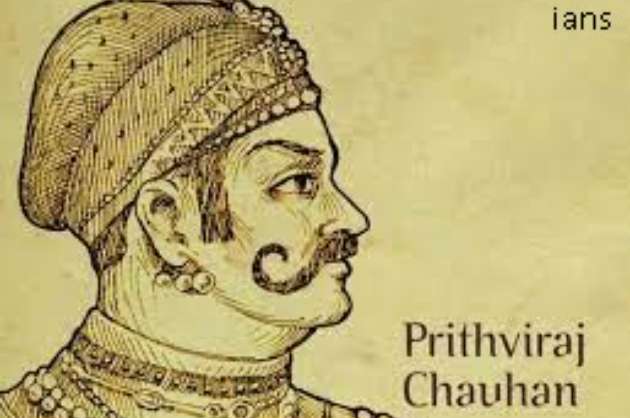
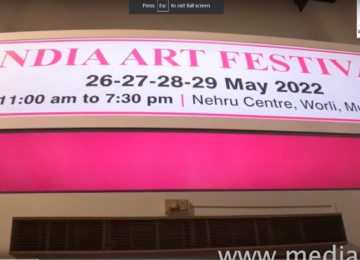






















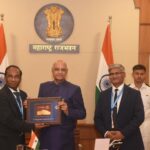




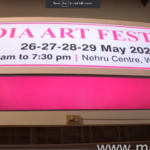
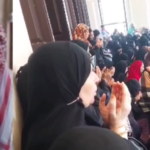



Sad story and the end of India
End of Bharat.
End of great Bharat and beginning of slavery. Still going on
End of Bharat. But not really as Indian civilization can never end
End of Bharat and her culture. How much Bharat Ma must have cried? Is she still free?
End of Bharat
Sad end to Hindu Bharat.
Sad end to Hindu Bharat.
Great king
Great king
Great king
Loved it.
End of Bharat.
End of Bharat.
Sad story and sadder end of Bharat
Sad story and sadder end of Bharat
Sad story and sadder end of Bharat
Sadly start of slavery
Sad end to Bharat ma’s culture
Heard about him from a friend. Lovely article.
Sad story.
Sad end to Bharat her culture. But not really as we have survived centuries of brutality.
Sad story.
Sad story.
Sad story and the beginning of slavery.
Sad story.
Sad story.
Very sad end to Hindu India
Very noble king of India
Very noble king of India
Very noble king of India
Very noble king of India
Nice article
Nice article
Nice article.
Nice article.
One of the greatest kings of India.
One of the greatest kings of India.
Was it the end of Bharat? No we survived even after slavery
Nice article.
Nice article.
End of Bharat.
End of Bharat.
End of Bharat
Sad story.
Sad story.